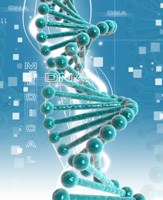
Top stories


Marketing & MediaWarner Bros. was “nice to have” but not at any price, says Netflix
Karabo Ledwaba 20 hours



Logistics & TransportMaersk reroutes sailings around Africa amid Red Sea constraints
Louise Rasmussen 13 hours

More news


















Nutrigenomics was introduced to us after the complete mapping of the human genome sequence in 2000, and along with this landmark achievement came the possibility of individualised medicine, and also personalised nutrition. So what exactly will nutrigenomics mean to science, to industry, and to the individual, and what challenges will it present?
"The science of nutrigenomics is a relatively young one, and predicting the impact that it will have on the medical, health and wellness industries is not easy," remarks Dr Keith Grimaldi science director of Eurogenetica and member of the Scientific Advisory Board of South African molecular biology firm DNALYSIS Technology (dnalysis.co.za). "Commercial nutrigenetic tests started way back in 2002 - we thought by now that it would be in more widespread use but for various reasons the growth has been slower than expected," he observes.
That said, Grimaldi has high hopes for the commercial future of nutrigenomics. "We're certainly seeing accelerated growth this decade; it's as if during the last decade we were traveling along the slow, shallow initial section of an exponential growth curve whereas now we are approaching the inflexion," he notes.
With large nutrigenomic research projects like the European Union's food4me.org (an international group of nutritional genetics experts who are examining various aspects of personalised nutrition), plus the emergence of new genetic testing companies with a responsible and reliable approach, rather than fly-by-nights, it is very likely that the impact of nutrigenomics over the next decade will be high, and therefore profitable. It's obvious that nutrition is the single most important aspect of our long-term health.
"Preventative healthcare is the new focus, as diseases resulting from bad eating and unhealthy lifestyles are catching up and overtaking our resources to handle them. Health and wellness providers have always tried to personalise advice, but now people are starting to realise that to personalise a diet, you absolutely need nutrigenetic andnutrigenomic information," notes Grimaldi.
Like any new area of science, nutrigenomics has its challenges ahead. "Sceptics have their doubts - for two main reasons, the first is the presence in the market of some obviously exploitative tests and to combat this, nutrigenomics as a viable business opportunity needs to fostersome industry standards or a set code of practice," recommends Grimaldi. "The second reason is often simply lack of knowledge and I know that situation because I was in it. I was an academic in London, a molecular biologist, my friend and colleague left to co-found the first ever nutrigenomics company in the world... and I was very sceptical. Then she provided me with a pile of scientific articles and locked me in a room until I had read them all. When I emerged I was surprised and convinced and joined the nascent company!"
Information and education, and more responsible companies are needed. "The good thing is that this is happening. Some very good companies have recently been created by some serious academics, especially in North America". In addition, more research is being published on the actual utility of nutrigenetics, and more and more research is being done on specific gene and diet interactions. "A recent study, for example, proves that a genetic variant that increases Type 2 diabetes risk can be neutralised by proper nutrition," mentions Grimalidi. Examples such as this are becoming more and more common.
Can it be said that personalised nutrition is the way of future? "Personalised nutrition is the way of the past, present, and future! Soon we will have new technologies and more sophisticated monitoring of biomarkers. The quaint blood test that measures cholesterol, glucose, and more will disappear in due course," he states. "We're at a very early stage in the process - the long term commercial value is likely to be in the interpretation of results and the delivery of personalised information," emphasises Grimaldi. This can already be seen in the hundreds of self-monitoring apps for smartphones that are available, and the old adage that 'one size fits all' will clearly not satisfy the market.
"Over the next few years we'll see a consolidation of current products and services in the market, an emergence of good, responsible products, and the disappearance of the 'snake oil'. It's a fascinating industry, with untapped potential," Grimaldi concludes.